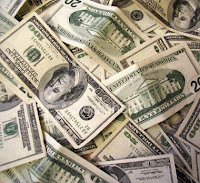Given the Choice; or, Betting Unfair at Betfair
 As a regular Internet user, I encounter my share of too-good-to-be-true offers via email and other unsoliticed avenues. Aside from those ungrammatical, syntax-defying messages with rude speculations about my love life, most contain some version of the “money-for-nothing” promise. You get ’em, too. Put a tic in the delete box and move on.
As a regular Internet user, I encounter my share of too-good-to-be-true offers via email and other unsoliticed avenues. Aside from those ungrammatical, syntax-defying messages with rude speculations about my love life, most contain some version of the “money-for-nothing” promise. You get ’em, too. Put a tic in the delete box and move on.There were a few online poker players who received a message of this sort during the wee hours of the morning of Saturday, January 12th. This time, however, there was something to it.
As an American, I cannot play on Betfair. That’s the site Annette Obrestad signed on with just before taking down the 2007 WSOP Europe Main Event, I believe. Still, I read with interest that story about the software snafu that enabled 20 or so players back in January to pilfer a fortune of ill-gotten winnings from the site in the matter of hours.
The glitch appears to have only come up in the site’s short-handed (6-max) SNGs -- what they call “6-pak” tourneys. Apparently if all six players went all in on the tournament’s initial hand, the winner of the hand would receive first place prize money and the other five players would all receive second-place prize money. In other words, rather than the top two splitting the prize pool, the total payouts were much larger -- by a factor of three, I suppose -- than what the six players were paying to play. A guaranteed positive ROI.
Players in the know began hastily registering for multiple $1K 6-paks, and the free-for-all lasted about three hours before Betfair discovered the problem and took measures to correct the glitch. The site then went about trying to secure whatever funds they could from the 20 or so players who had exploited the problem.
It is unclear how much the players made away with -- some have suggested the total might be as much as £1,000,000 (around $2 million) -- nor how much of that Betfair thus far has able to recover. Incidentally, Betfair is, in fact, entitled to recover the money, as section 9.2 of their Terms and Conditions states that players agree to refund winnings that result from “any bug, defect or error in the software.”
Kind of curious to learn how the glitch was first discovered, actually. One of those 6-pak SNGs must have gone off with, say, just three entrants who each must have been dealt (or made) good enough hands to end up getting it all in there on Hand No. 1. And when all three got paid, they somehow communicated that fact to each other . . . ? In any event, happy hour commenced shortly thereafter.
The first news of the problem popped up in a post over on 2+2 on January 12th. Perhaps unsurprisingly, the poster concluded his report with a lament: “I just wish I had been part of it.” Several respondents in the thread echoed the OP’s sorrow at having missed an opportunity for some easy money. In the story’s wake there have been a few other discussions on the forums and elsewhere about the ethical obligations of online players and/or sites, and about cheating, generally speaking.
On the surface, the incident provides an interesting contrast to the Absolute Poker so-called “superuser,” insider cheating scandal of August-October 2007. With that sorry episode in mind, some responded to the Betfair story as an example of online poker players exacting a “revenge” of sorts against the industry.
Of course, it is more accurate to view the Betfair incident as just another example of the online poker culture’s pervasive, antithetical attitude toward ethics, fairness, and personal responsibility. The behavior of those who took advantage of the glitch recalls that of patrons hungrily gathering around a malfunctioning slot machine paying out jackpots for every pull. Or kiddies exploiting video game “cheats” and “hacks.”
The latter is probably the better analogy here. I do think that a significant percentage of those who play online poker look upon it as just another video game. The same can be said of the Internet as a whole, which I think many (still) do not regard as “real” enough to warrant the sort of ethical standards a lot of us instinctively recognize in our non-Internet activities and interactions.
Another reason why most lawmakers in this country won’t ever support online poker. And why many will actively continue to try to suppress it. Indeed, for a lot of folks, there are two reasons to oppose online poker . . .
It’s poker. And it’s online.
(For more on that, see “Online Poker’s Outlaw Status” & Part 2.)
Labels: *the rumble













3 Comments:
£1M is more like $2M, has been for a while.
Thx, Anon. (I fixed the post.) Shoulda got that, as that was Obrestad's prize for the WSOPE ME (and we were reminded repeatedly what the conversion rate was then).
Wow. Reminds me of ten years ago when the ATM down the street from me dispensed $20's instead of $5's. You could request $25 and get $40.
Post a Comment
<< Home